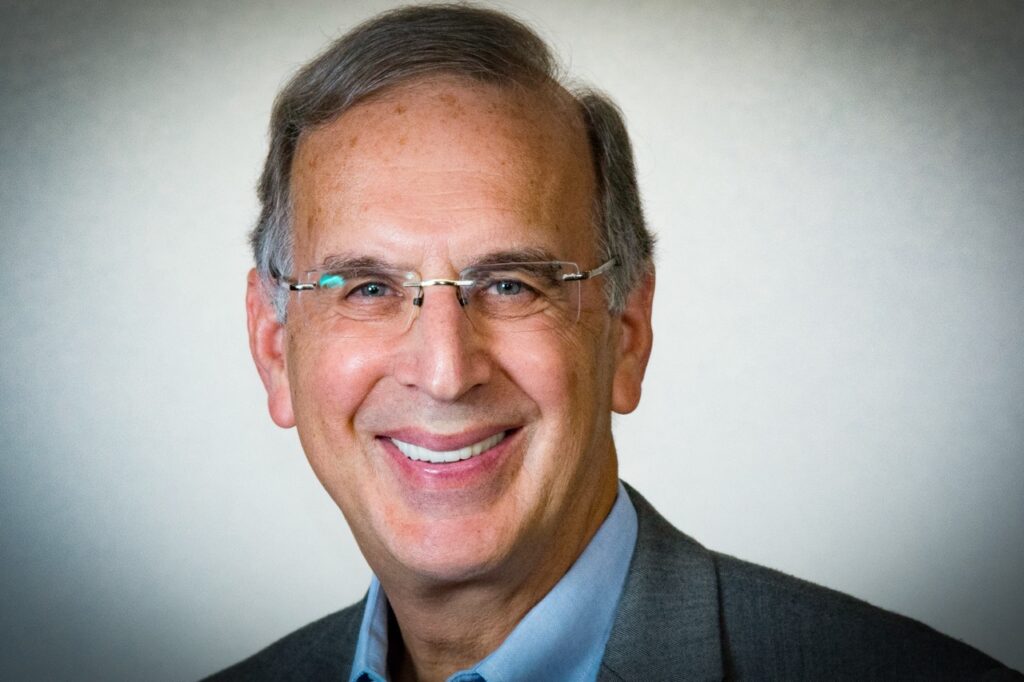The notion of living in two civilizations is rapidly being eclipsed in the 21st century by the notion of living in multiple civilizations, among them digital, global, multi-cultural, and multi-gender orientations.
From Earl Schwartz

Historical and Cultural Perspectives
Kwame Anthony Appiah’s work on identity, The Ethics of Identity, (in which he references Kaplan) is a very thoughtful commentary on these issues. Appiah’s analysis of social identities ultimately leads to an extended discussion of “rooted cosmopolitanism,” which draws on his own experience of being heir to and shaped by multiple identities. He concludes that to reduce the complexities of identity, in oneself and others, is to reduce the person. In this spirit, he ends the book with a proverb from his father’s Asante tradition, rendering a key word in Greek: “In a single πολις [polis] there is no wisdom.” How does “rooted cosmopolitanism” compare with “The American Jew will not be fifty percent Jew and fifty percent American, but 100 percent of each, for he will have achieved a synthesis in his own personality of whatever is valid in both the Jewish and American civilizations”?
Kaplan maintained that the improbable survival of the Jewish People, despite repeated encounters with dominating civilizations, should be understood in light of our having sustained a critical degree of devotion to principles that transcend survival for its own sake. The United States has long claimed a similar legacy – a nation, as Lincoln put it, born in liberation, and dedicated to an ethical proposition. How to engage this supersessional aspect of the American self-image from Kaplan’s perspective? Joseph Epes Brown characterized “the progressive weakening and occasional total loss” of language as “perhaps the greatest tragedy” to befall a people emmeshed in a dominant society. The waning significance of Hebrew among American and Canadian Jews would seem both a symptom and a source of this tragedy – but Epes Brown’s observation comes from his Spiritual Legacy of the American Indian. Sometimes, perhaps, we find it easier to recognize and acknowledge this tragedy among other peoples than we do among ourselves.
From Rabbi Sid Schwarz

Generational Considerations
I was quite enamored of Kaplan’s two-civilization concept when I was in my 20’s. It spoke to me very differently than it does now. My waning enthusiasm for the idea is a combination of how I have changed and how America has changed. I now see Kaplan’s argument as part of a line of thinking that was widespread in Jewish intellectual circles in the early 20th century to make an intellectual argument to justify why Jews belonged in America. There was a lot of that around. I often have quipped that the leaders of that school of thought were the KKKs: Mordecai Kaplan, Horace Kallen, and Milton Konvitz. There were others, of course. The argument was generational. It spoke well to my parent’s generation. They were both immigrants and the Jews who came to America had the same insecurities about their “place” here, similar to immigrants of all faiths and ethnicities who shared that experience. Even early in my rabbinate, I did not find the audiences I spoke to all that impressed by Kaplan’s argument. By the 1980’s, when I began my rabbinate, Jews were already quite comfortable with their place in America.
In Chapter One of my book, Judaism and Justice, I offer a very different take on the two-civilization idea. I argue that in an America that has done such a poor job of inculcating noble and ethical values to its citizens (which is even more abundantly clear today than when I wrote the book), we need to argue for a “Judaism as counter-cultural” to what America is. I offer a fuller case for this in the book.
A document about a future vision for the Reconstructionist movement made little mention of theology. At a time when the differences between the various streams of non-Orthodox Judaism are becoming increasingly difficult to distinguish, it is an enormous mistake to avoid speaking about the non-supernatural/religious humanist approach to theology that is at the very core of Kaplan’s teachings.
From Rabbi Gail Shuster Bouskila

An Israel Perspective
Listening to the presentations and the reactions to them made me realize that I am STILL living in multiple civilizations in Israel. I will always be a Jew of multiple identities – an American, and of course a Reconstructionist. But now I am part of a minority group here: Liberal, non-Orthodox Israelis.
Here is the article which triggered this Talmud Dialogue by Dr. Jeffrey Schein
Tosafot (additional commentaries) by Rabbi William Plevan and Dr. Mel Scult
Rabbi William Plevan, Reconstructionist Rabbinical College
Mordecai Kaplan and Stephen Breyer on Jewish Law
In his new book, “Reading the Constitution: Why I Chose Pragmatism, Not Textualism,” former Supreme Court Justice Stephen Breyer explains why favors the pragmatist tradition in legal thought in contrast to the conservative approach to jurisprudence known as textualism or originalism. Breyer’s invocation of pragmatism calls to mind the work of Rabbi Mordecai Kaplan, the pioneering rabbi, educator, and theologian. In particular, Breyer’s book offers an opportunity to consider what seems to be a neglected element of Kaplan’s own project, namely the revival of democratically shaped Jewish law as a living social reality in Jewish communities.
After a brief summary of Breyer’s argument, I’ll discuss how it might illuminate Kaplan’s distinctive approach to Jewish law.
While Ruth Bader Ginsburg may be the most iconic of the liberal Supreme Court Justices of the past three decades, it is Breyer, the author of many books on jurisprudence, who became the court’s leading legal philosopher. In this work, he presents his approach to legal interpretation through a detailed discussion of Supreme Court cases where the differences between justices in deciding the case reflect the philosophical differences between pragmatism and textualism. For Breyer, pragmatism involves a commitment to a purpose-orientated approach to law, which means considering the general purposes of a particular law or Constitutional clause when engaging in textual interpretation. How a law should be applied depends, on this view, on what Congress or the Constitution’s framers intended to achieve. Textualists, most notably conservative jurists such as Antonin Scalia, Clarence Thomas, and Samuel Alito, insist that this purpose-oriented approach is subject to vagueness and open-endedness. To interpret law with attention to purpose gives the judge, the claim goes, with too much power to determine the meaning of law.
The term pragmatism is often used to mean “expedient;” someone pragmatic is willing to compromise, perhaps even their values, to achieve some goal or success. This is not what the term means in legal interpretation (or in philosophy for that matter, but that’s another story).
Breyer’s defense of judicial pragmatism insists that taking into account the purpose of the law is the way to ensure both the legislative intent and the democratic underpinnings of the legal system. In this respect, he stands in a long tradition of legal pragmatism that goes back to Oliver Wendel Holmes, the jurist and scholar who served on the Supreme Court in from 1902-1932. As Breyer notes, Holmes decried the excessive use of logic in judicial reasoning and instead favored the use of “judicial instinct,” by which he meant the jurist’s experience-based wisdom of with how the law (or some particular law) functions in real life and how legislative or Constitutional language could mean different things in different contexts. This kind of flexibility and attention to real-life problem solving is at the heart of what Breyer means by pragmatism. In Breyer’s vision, the purpose of law is to bind the people together in a democratic process that resolves real-life problems fairly and peacefully. The function of the Constitution is to make democratic deliberation possible to produce such laws. Therefore, he argues, jurists need to keep these broader goals of Constitutional norms in mind when deciding how to interpret them. The problem with originalism is that it largely keeps, and insists on keeping, these broader aims out of view when engaging in judicial interpretation.
In his own approach to Jewish practice and Jewish communal life, Mordecai Kaplan was very much a pragmatist in Breyer’s sense. Indeed, reading his work led me to wonder whether the pragmatist legal tradition exemplified by Oliver Wendel Holmes was a more appropriate way to place Kaplan in that tradition than the work of James and Dewey. We know that Kaplan placed a great emphasis on the purpose of Jewish practice in determining its value and legitimacy. Likewise, Kaplan viewed the purpose of Jewish practice as maintaining the national character of the Jewish people, whether in the land or in exile. In modern age, he believed it was “necessary to stress the ethical and spiritual consequences”1 of Jewish ideas, values, and practices in order to maintain their vitality.
Kaplan’s designation of Jewish spiritual practice as folkways is well known, as is his adage that halakha should have a vote, not a veto. What gets less attention is Kaplan’s quite ambitious hope for a new role for the term “Jewish Law” as a form of sub-governmental communal governance of the American Jewish community. Kaplan outlines this program in The Future of the American Jew, published in 19482. There he outlines the way Jewish law (classical halakha) had functioned at least putatively to govern Jewish life. He argues that Jewish law should have three primary domains: family relations (i.e. marriage and divorce); the governance of communal organizations; and ritual practice. In this framework, Kaplan imagines that the community would exercise authority over communal membership (presumably conversion as well as membership standards) and the qualifications and regulations for secular and religious communal leaders.
The influence of the American legal tradition on Kaplan is evident in his use of the term “constitutional law” to refer to the basic covenant that would establish this communal governance structure. Such a constitution is necessitated by the fact that this modern form of Jewish community is democratic and voluntaristic. Here then, Kaplan very much sits within the American tradition of legal pragmatism in that he thinks of law as serving the needs and the will of the people. While classical halakha relied on interpretation of authoritative sources for its development, Kaplan insisted that new Jewish law would need a legislate mechanism of some kind3. Every Jew in the community would be guaranteed a voice in shaping this legislative process. Thus, like Breyer, Kaplan views the purpose of a constitution as providing the means for a people to live democratically.
Kaplan does not eliminate religious language from his account of this modern form of Jewish law. Indeed, he states unequivocally that “the law in a democratic polity derives its ultimate validity from the extent to which it conforms with the divine will, by actually contributing to the salvation of the individual and of human society generally4.” Such talk of the divine will seems to strike us as anti-liberal, but Kaplan’s intention in that section is quite clear. He understands God’s will to be found in the self-actualization of every individual person in a society, which requires that all individuals be able to participate in shaping that society. In other words, striving to achieve a democratic polity is itself the work of doing the divine will.
Dr. Mel Scult’s Commentary
Additional Thoughts on Kaplan and Pragmatism
First off, yes of course Kaplan is known as a pragmatist. He often uses this term and more often prefers to call himself a functionalist. Judaism must function in the life of the individual and the group and if it doesn’t function we need to change it so that it does.
I think Kaplan’s attitude toward the law which is the center of your note is ambivalent; he sostands on both sides of an issue. He talks both negatively and positively of the law i.e. the halacha. Most importantly he said that there should be flexibility when it comes to ritual but not when it comes to the ethical. In other words, the ethical is always paramount. I think the ethical is what Justice Breyer means when talks of the purpose of the law as relating to the will of the people, although that phrase may be interpreted in many ways.
With reference to pragmatism, I think Kaplan, although he read James at an early point in his career, did not quite realize the inherent flexibility of approaching religion in a pragmatic way. Pragmatism considers ideas as tools we invent to help us cope. They are not out there waiting to be discovered, but our provisional responses to particular situations. This is quite a radical way to go even for Kaplan.
Plevan, who I have known for a long time, and whom I greatly respect as a Kaplan scholar, refers to Justice Holmes. Kaplan respected Holmes’ pragmatism although it is well to remember that Holmes was quite extreme. Because Kaplan read Holmes, I have read Holmes. He is really attractive in many ways. I am most impressed with his conception of truth. He defines truth as “what he can’t help believing” and then he goes on to say that he is well aware that his “can’t helps” are not necessarily other’s “can’t helps” or even “cosmic can’t helps.” Would MMK be willing to go that far?
Kaplan often referred to the issue of what makes life worthwhile as the most fundamental question that we confront. Here is a comment from Justice Holmes on just that issue and the matter of civilization which was of course central to the Kaplanian schema. I am quoting it fully because it is so valuable.
“The joy, the duty, and I venture to add, the end of life, I speak only of this world, of course, and of the teachings of this world. But from the point of view of the world, the end of life is life. Life is action and the use of one’s powers. And to use them to their height is our joy and duty. Until lately the best thing I was able to think in favor of civilization, apart from blind acceptance of the order of the universe, was that it made possible the artist, the poet, the philosopher, and the man of science…
Life is an end in itself, and the only question as to whether it is worth living is whether you have enough of it.”
